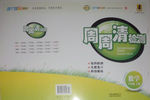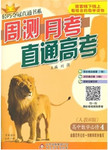题目内容
Anyone be in a rough life time, whether he is “Bai Fumei” or “Gao Fushuai.”
A. must B. will C. can D. should
C
【解析】
试题分析:考查情态动词。A. must 必须;B. will将要;C. can可能,会;D. should应该。句意是:无论他是白富美还是高富帅 ,任何人都有可能处于艰苦的时候。can用于肯定句中,表示客观存在的“很可能”。故选C。
【考点】考查情态动词

练习册系列答案
 周周清检测系列答案
周周清检测系列答案 轻巧夺冠周测月考直通高考系列答案
轻巧夺冠周测月考直通高考系列答案
相关题目